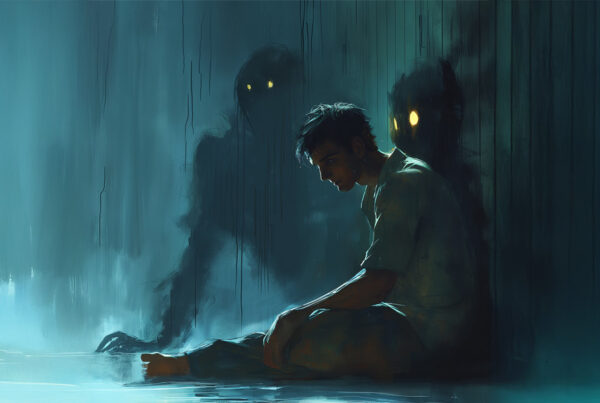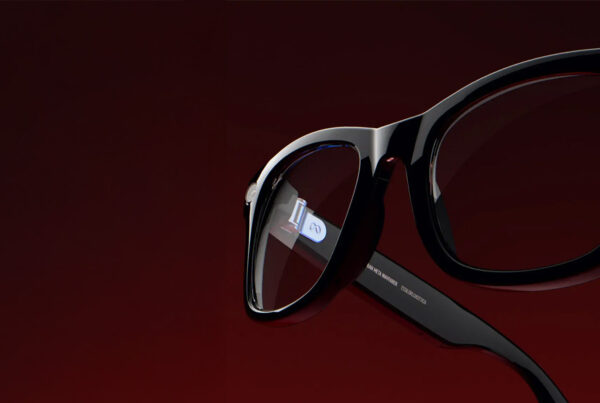
You know those albums that completely blindside you? The ones that make you stop whatever you’re doing and just… listen?
That’s exactly what happened to me when I first heard Plan B’s “The Defamation of Strickland Banks.”
There I was, expecting another gritty UK rap album, and instead, I got this beautifully crafted soul opera that felt like it had time-traveled straight from the 1960s.
Let me take you back to 2010. While everyone was busy debating whether Instagram would kill Flickr (oh, sweet summer children), Ben Drew was quietly orchestrating one of the most ambitious musical pivots I’ve ever witnessed. Here was a guy known for raw, uncompromising rap, suddenly channeling his inner Otis Redding – and somehow making it work spectacularly.
Storytelling
The genius of this album isn’t just in its sound – it’s in its storytelling. Drew created this character, Strickland Banks, a soul singer living his best life until… well, until everything goes spectacularly wrong. It’s like watching a British crime drama unfold through music, complete with false accusations, prison time, and enough plot twists to make Line of Duty writers jealous.
The narrative starts with Banks on top of the world, crooning love songs like “Love Goes Down” to packed venues. But then – because life has a way of throwing curveballs when you least expect them – a one-night stand with an obsessed fan turns into a nightmare of false rape accusations and prison time. It’s heavy stuff, handled with surprising nuance and complexity.
When Music Meets Cinema
Remember that brief period during lockdown when we all became amateur film critics? Well, the music videos for this album would have given us plenty to analyse. They’re not just promotional tools; they’re mini-movies that piece together Banks’ story like a jigsaw puzzle. The casting is spot-on too – seeing Kaya Scodelario (Skins) and Vicky McClure (This is England) in these videos is like stumbling across early episodes of your favourite actors before they hit the big time.
The visual treatment is something else entirely. Take “Stay Too Long” – it captures that chaotic energy of a night out gone wrong, the kind where you know you should’ve left two hours ago but somehow find yourself still there as everything spirals out of control. We’ve all had nights like that (though hopefully with less dramatic consequences than poor old Strickland).
The Sound of Transformation
Here’s what really gets me about this album: Drew didn’t just dip his toe into soul music – he dove in headfirst. The transformation from gritty rapper to smooth soul singer is like watching someone pull off a perfect backwards flip without any training. It shouldn’t work, but it does, and it does so beautifully.
The production feels like it was recorded in 1965 but somehow sounds completely fresh. It’s that rare sweet spot where vintage and contemporary meet – like finding the perfect mid-century modern piece that looks just as good in your 2024 living room as it did in 1960.
More Than Just Music
Looking back, this album was more than just a collection of songs – it was a statement about artistic reinvention. In an era where we often put artists in boxes (oh, you’re a rapper? Better stick to rap!), Drew basically said “watch me break every rule in the book” and created something truly special.
The impact was huge. It won Drew the Brit Award for Best British Male in 2011, but more importantly, it showed that you could still make ambitious, narrative-driven albums in an age where everyone was predicting the death of the album format. It’s like when everyone said blogs were dead, and then newsletters came along and proved that people still love long-form content – sometimes the format isn’t the problem, it’s what you do with it.
The Great British Soul Experiment
Here’s what fascinates me most about this album: it’s quintessentially British while channeling pure American soul. It’s like when British chefs take on classic American dishes – there’s something familiar yet distinctly different about the approach. Drew wasn’t trying to be the next Smokey Robinson or Frankie Valli – he was creating something entirely his own, filtering those influences through a distinctly British lens.
You know how we often talk about British TV shows having this unique ability to tell complex stories in limited episodes? (I’m looking at you, Bodyguard!) Well, Drew approached this album with that same British knack for tight, compelling narratives. He called it a “film for the blind,” which is exactly what it feels like – a proper British drama that just happens to be set to music.
When British Grit Meets Soul Sophistication
The transformation Drew pulled off here is nothing short of remarkable. Imagine if Guy Ritchie suddenly directed a Jane Austen adaptation – and it worked! That’s the level of genre-hopping we’re talking about. But here’s the thing: Drew had always had this soul voice in his back pocket. He just chose the perfect moment to unleash it.
The production is where things get really interesting. Instead of just sampling old soul records (which would have been the easy route), Drew and his team went full authentic. We’re talking proper live instrumentation, arrangements that would make the Motown masters proud, but with this undeniable British edge. It’s like they built a time machine, traveled back to 1960s Detroit, but brought along a bit of East London attitude for good measure.
A Very British Success Story
The numbers tell their own story – hitting #1 on the UK Albums Chart, going triple platinum, bagging the Brit Award for Best British Male in 2011. But what’s more impressive is how they got there. This wasn’t a carefully focus-grouped attempt to crack the charts. It was a proper artistic risk, like opening a fine dining restaurant in a pub – it could have gone horribly wrong, but instead, it created something special.
The success of “Strickland Banks” reminds me a bit of what I was saying about R U OK? Day – sometimes the most powerful things come from genuine authenticity rather than following a formula. Drew wasn’t trying to jump on any bandwagon; he was creating his own lane entirely.
Why It Still Matters
Listening to “The Defamation of Strickland Banks” in 2024 is like watching a great film from the 2010s – you notice how well it’s aged, how the storytelling holds up, how the production still sounds crisp and intentional. In an era of algorithm-friendly singles and TikTok-optimised hooks, there’s something refreshing about an album that demands you sit down and experience it from start to finish.
It reminds me a bit of those Ray-Ban Meta glasses I’ve been testing – both are examples of how you can take something familiar (sunglasses, soul music) and reinvent it for a new era without losing what made it special in the first place.
So here’s my suggestion: find an hour in your day, put on some good headphones, and give this album your full attention. Trust me, Strickland Banks has quite a story to tell you.


